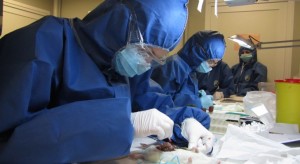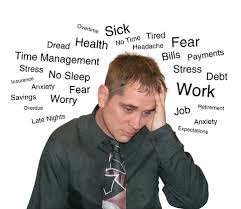
Cancer and Stress the worse collaboration. Prevention is always better than treatment for cure.
To deal with cancer, you also need to deal with stress. And that makes cancer and stress the worse collaboration in human health. If the two conditions are merged in an individual patient, treatment becomes very difficult. And in fact the way you handle stress can have a huge impact on the way you and your health team manage cancer. It is therefore very important that when you have been diagnosed with cancer, you must be on top of stress by all means and avoid those things, situations and places that are likely to trigger stress. The information about stress is also very important for you. Doctor Akoury says that many patients risk their healing process by allowing stress to take over the control of their lives. This is what we want to eliminate so that you can face the disease (cancer) with a lot of sobriety.
As we have indicated, the information about stress is very important. So what is stress? It is a normal response to feeling threatened or to facing a challenge you’re not sure you can meet. Stress can be chronic, which means it is long lasting and often gets worse over time. Or it can be acute, coming on quickly with short-lived but often severe symptoms. It is possible that you can have emotional stress, like for instance, the feelings you get when you are faced with financial challenges or the feelings that follow when the reality dons on you that you have a chronic ailment like cancer. Besides the emotional stress, you can also have physical stress. For instance, not getting the adequate sleep you need can make it hard for your body to do what it needs to do during the day causing you to feel tired, fatigue and stressed. An illness can put stress on organs and other parts of your body. And some treatments or medications you take can also cause your body to react in stressful ways.
Emotional stress can be very overwhelmed in an individual’s life. It can trigger the feelings of being helpless in the things you do and what you think about. It can interfere with your sense of well-being and cause you to lose hope that things will improve, and the state of being hopelessness can be very fatal if not addressed in good time. Stress can also lead to depression.
Some people believe stress can play a role in developing cancer. There is, though, very little evidence to show that stress causes cancer in people who don’t already have it. The few studies that have shown a link looked mainly at severe stress. One found that women who lost a spouse through separation, divorce or death had a higher risk for breast cancer. Another showed that people who lived through the Holocaust as children have a higher risk for developing cancer. Even though a lot more needs to be done to authenticate the direct link of stress to cancer, several studies have actually established that those who are already struggling with cancer are very vulnerable and that stress is likely to play a significant role in the way this disease escalates. It is equally important to note that health conditions like trauma, depression and distress have all been linked to more rapid progression.
The effects of stress may stem from how your body responds to it. When you’re stressed, your body makes certain so-called “stress” hormones to deal with it. In many cancer patients, these hormones bind with cancer cells. That can make the cells more invasive and help protect them as they move from one part of the body to another. This makes it easier for the tumor to grow and the cancer to spread. Nonetheless being stressful can also trigger negativity to your immune system which is the body basic defender from external and internal aggression. It has been established that, stress can interferes with the way certain cells in your immune system work. In particular, it affects cells that find and that kill emerging cancer cells.
Cancer and Stress the worse collaboration: How Can I Protect Myself against the Effects of Stress?
People with better support tend to have better functioning immune systems. They also tend to have lower levels of certain stress hormones. This makes it less likely that stress will cause changes in the way a tumor grows. Some studies also show that people with more support have lower levels of chemicals that promote new cell growth and make tumors more aggressive.
Support makes it easier to develop qualities you need to deal with stress. For example, it can help you develop more active coping skills. A strong support network can reduce the effects of stress in several ways including the following:
- It can lessen the magnitude of the problem and help you see that event as less stressful. That will lessen your body’s response to it.
- It can improve your management levels and how you cope by providing advice, problem solving techniques and resources for help when you need it.
- It can help enhance positive health behaviors such as exercise and proper nutrition.
- It can provide support that makes it easier to adhere to your medical treatment plan.
A number of recent studies have also shown that, in addition to a support network, there are potential benefits from programs that help you learn how to manage stress. Such programs include:
- Cognitive behavioral therapy
- Mindfulness
- Yoga
- Alternative therapies such as Healing Touch
- Medication
It is important to appreciate that such programs can not only help you in dealing with the stress that comes from having cancer, but the stress that can come from treatments such as chemotherapy and radiation as well. Therefore cancer and stress must not be allowed to ruin your health. There is always something you can do to be safe. You can talk to the experts at AWAREmed Health and Wellness Resource Center under the able leadership of Doctor Akoury’s care for professional assistance today by scheduling for an appointment with her.












